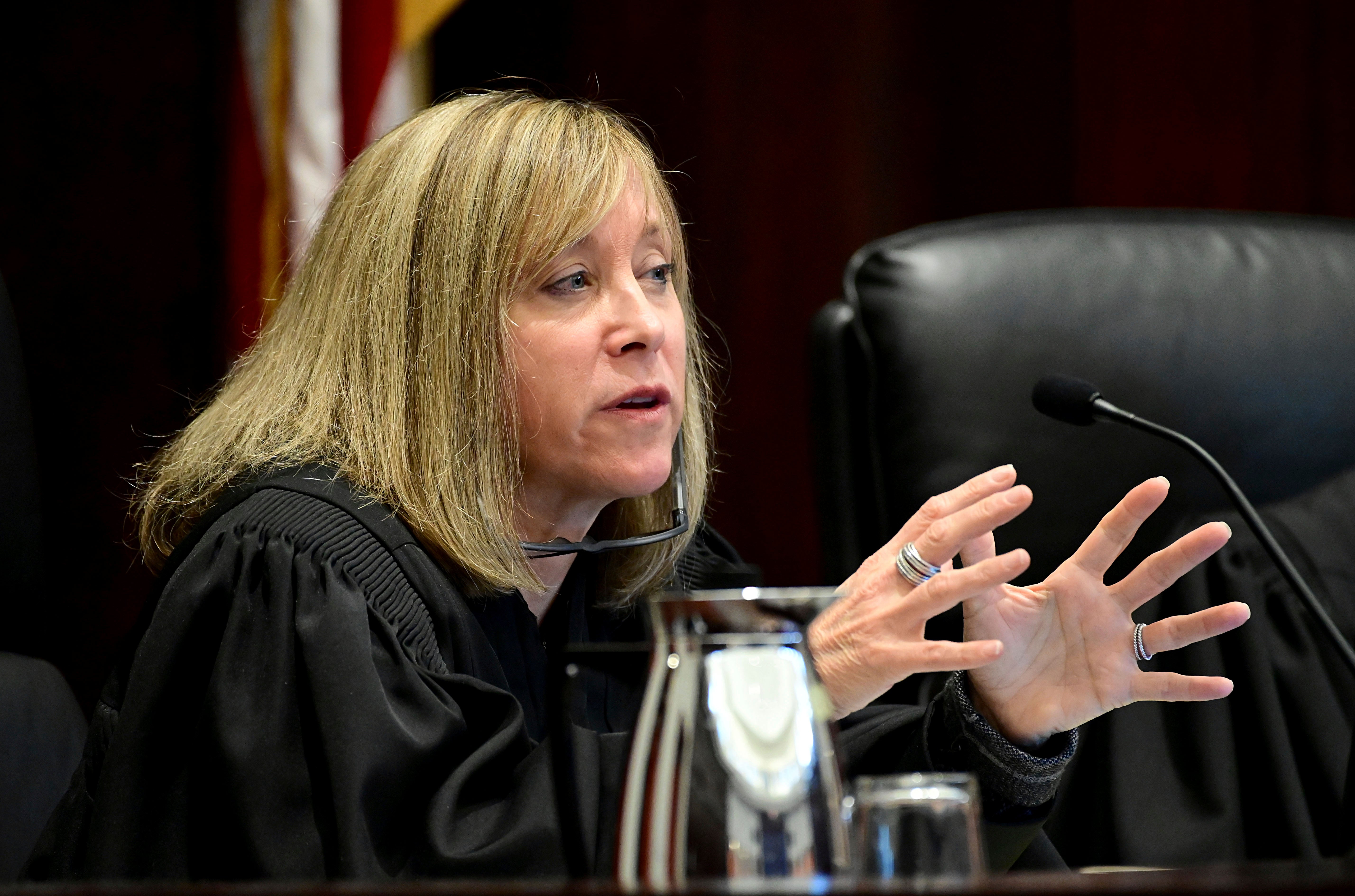Michigan judges ordered to honor pronouns of parties in court
The Michigan Supreme Court has ordered all judges to address people in court by the pronouns they use or by “other respectful means.”

Your support helps us to tell the story
From reproductive rights to climate change to Big Tech, The Independent is on the ground when the story is developing. Whether it's investigating the financials of Elon Musk's pro-Trump PAC or producing our latest documentary, 'The A Word', which shines a light on the American women fighting for reproductive rights, we know how important it is to parse out the facts from the messaging.
At such a critical moment in US history, we need reporters on the ground. Your donation allows us to keep sending journalists to speak to both sides of the story.
The Independent is trusted by Americans across the entire political spectrum. And unlike many other quality news outlets, we choose not to lock Americans out of our reporting and analysis with paywalls. We believe quality journalism should be available to everyone, paid for by those who can afford it.
Your support makes all the difference.The Michigan Supreme Court on Wednesday ordered all judges to address people in court by the pronouns they use or by “other respectful means.”
“We serve the entire public and are required to treat those who come before us with civility and respect,” Justice Elizabeth Welch said. “The gender identity of a member of the public is a part of their individual identity, regardless of whether others agree or approve.”
The statewide rule was approved, 5-2.
Some transgender, nonbinary or gender-fluid people use they, them and their as a gender-neutral singular personal pronoun.
“Courts must use the individual’s name, the designated salutation or personal pronouns, or other respectful means that is not inconsistent with the individual’s designated salutation or personal pronouns,” the Supreme Court said.
During a public comment period earlier this year, some critics cited religious reasons for not wanting to address someone by a pronoun they use.
The rule, which kicks in Jan. 1, will still allow judges to avoid pronouns and refer to someone by their role in the case, such as attorney or plaintiff, followed by a last name.
The rule “does not force anyone to violate their beliefs,” Welch said.
Justices Brian Zahra and David Viviano opposed the rule.
“This is a fluid political debate into which our judicial branch of state government should not wade, let alone dive headfirst and claim to have resolved," Zahra said. ”Such hubris has no place within the operation of a judicial branch of state government."
___
Follow Ed White at http://twitter.com/edwritez